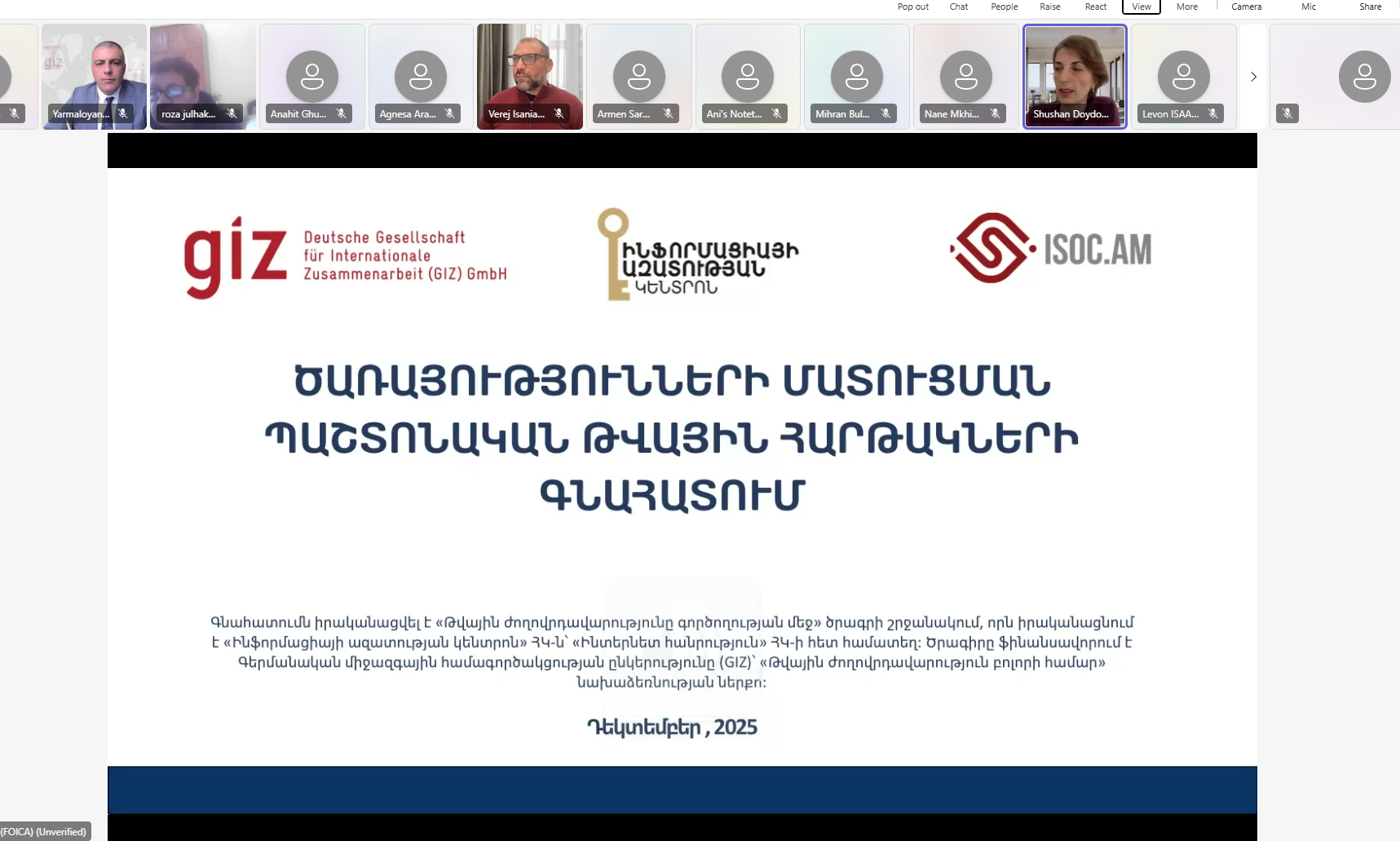ATI self-assessment Toolkit has been developed
The Freedom of Information Center has developed a new guidebook, the Access to Information Self-Assessment Toolkit. This resource is set to empower Access to Information Officers (ATI officers) and public institutions in their mission to uphold the principles of freedom of information.
The Toolkit represents a pivotal tool within the realm of access to information (ATI), designed to assist information holders in evaluating their adherence to critical criteria and responsibilities. Its primary objectives include determining the extent to which information holders possess the requisite resources and prerequisites to effectively fulfill their duties in providing access to information, as well as assessing how well these responsibilities are being met.
The Access to Information Self-Assessment Toolkit offers a clear, accessible roadmap that information holders can follow to ensure compliance with the “On Freedom of Information” law and international standards governing access to information.
Key Highlights of the Toolkit are:
Target Audience: While the primary beneficiaries of this Toolkit are state and local self-government bodies, state or community institutions, and organizations, other entities falling under the purview of the “On Freedom of Information” law can also leverage this invaluable resource.
Two-Part Structure: The Toolkit comprises two integral components:
a. Minimum Steps: These sections lay out the essential actions information holders must take to effectively discharge their access to information responsibilities.
b. Questionnaire: Corresponding to each section are a series of questions. Information holders can assess their compliance with access to information responsibilities by providing simple “yes” or “no” responses to these questions.
This innovative Self-Assessment Toolkit promises to be a game-changer in the realm of access to information. By providing a systematic and user-friendly approach, it equips ATI officers and institutions with the tools they need to enhance transparency, uphold the law, and foster a culture of openness.
The release of this Toolkit is expected to catalyze improved compliance with access to information standards, thereby strengthening democracy, accountability, and citizen engagement in the Republic of Armenia.
As of December 2024, an Access to Information Self-Assessment tool has been successfully piloted in the Prime Minister’s Office, the Ministry of Labor and Social Affairs, and the Ministry of Economy of the Republic of Armenia. In the near future, the tool will also be introduced in other public administration bodies. The comprehensive implementation of the system across public administration will allow for identifying FOI proactive and reactive issues and developing targeted solutions. This process will also enhance access to official information, both directly and indirectly.
Toolkit is developed and published by the Freedom of Information Center NGO (FOICA) within the “Advanced Access to Information and Beneficial Ownership Transparency in Armenia” project: The Project is supported by the Eastern Partnership: Open Door Grants, Sub-grants provided under the EU for Integrity Programme. The content of the Toolkit is solely the responsibility of the FOICA and does not necessarily reflect the views of the European Union.
ATI Self-Assesment Questionnaire
The Access to Information Self-Assessment Questionnaire is designed for state and local self-government bodies, state or community institutions and organizations to evaluate their activities in the field of freedom of information in order to comply with RA legislation on Freedom of Information and international standards. By answering the questions presented in the questionnaire with a simple “yes” or “no”, the information holder can assess whether he is actually fulfilling his responsibilities in the field of freedom of information properly.

Summary of the Questionnaire
the responsibilities in the field of access to information are not fulfilled properly or not at all. In terms of access to information, the information holder usually violates the FOI law. It is necessary to implement the actions mentioned in Part 1 of the Toolkit as soon as possible.
6-10 points – Fair state of access to information:
the responsibilities in the field of access to information are not fulfilled properly or are fulfilled with certain flaws. In terms of access to information, the information holder not always, but often violates the FOI law. It is necessary to review the actions carried out in the field of access to information, edit them in accordance with Part 1 of the Toolkit.
11-15 points – Good state of access to information:
the responsibilities in the field of access to information are mostly fulfilled properly. In terms of access to information, the information holder generally does not violate the FOI law. The information holder can undertake a more comprehensive assessment/self-assessment of the ATI state to further improve its ATI actions.







